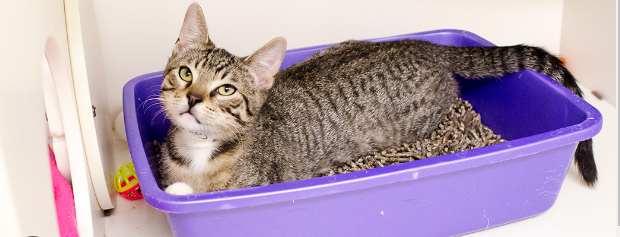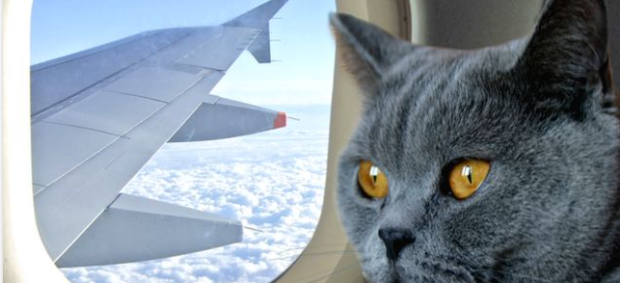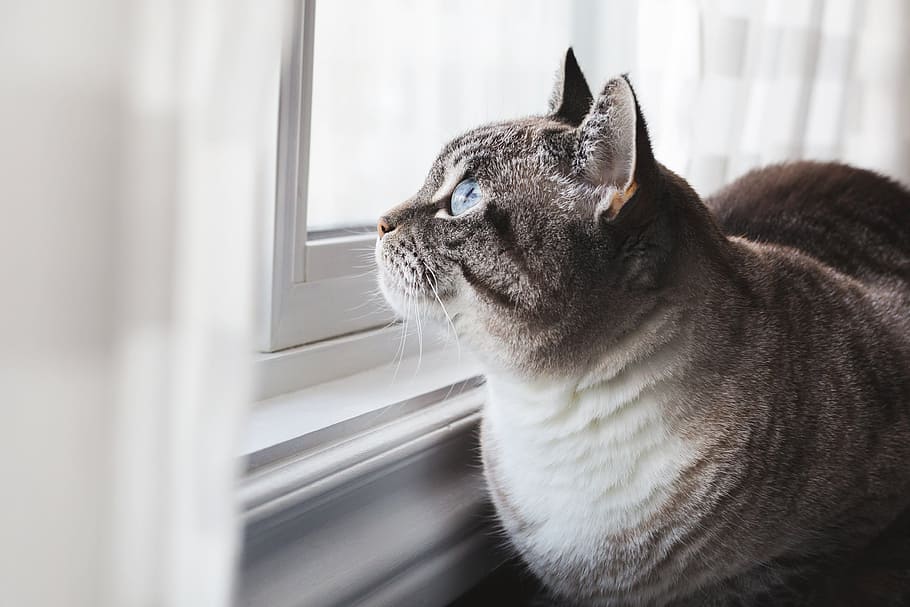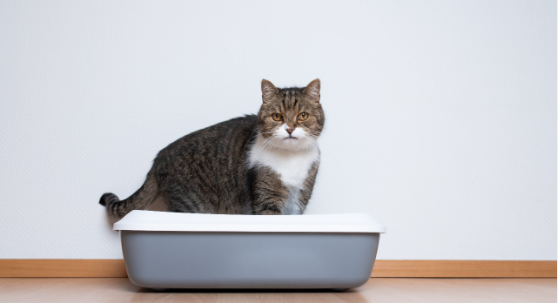How Long Can Cats Hold Their Poop?
Cats are known for their cleanliness, and one of the ways they maintain this is by regularly using the litter box. As cat owners, it’s important to monitor our cats’ bowel movements to ensure they are healthy and comfortable.
One of the questions that often arise is how long cats can hold their poop. Knowing this information can help us identify potential health issues early on and take appropriate action.
The Importance of Knowing How Long Cats Can Hold Their Poop
As pet owners, we want our furry friends to be as healthy and comfortable as possible. Understanding how long a cat can hold its poop helps us identify if there is a potential problem with their digestive system that needs attention.
If a cat goes too long without having a bowel movement, it could lead to constipation or even a megacolon, which is a condition where the colon becomes enlarged and loses its ability to contract properly. This condition often requires medical intervention such as medication or surgery.
Factors That Affect A Cat’s Bowel Movement
Several factors affect a cat’s bowel movement frequency, including age, health condition, diet and hydration levels, and stress levels. Age: Kittens require more frequent bowel movements due to their developing digestive system. As cats age into their senior years, they may experience changes in bowel movement frequency due to changes in their metabolism.
Health Condition: Certain health conditions such as inflammatory bowel disease or parasitic infections may cause changes in your cat’s bowel movement frequency or consistency. Diet and Hydration Levels: Diet plays an essential role in maintaining your cat’s digestive system health.
Feeding your cat high-quality protein-rich food that contains sufficient fiber ensures smooth digestion and regular bowel movements. Water intake is also an important factor in promoting regular bowel movements.
Dehydration can lead to constipation, so it’s essential to ensure that your cat has access to fresh water at all times. Stress Levels: Cats are sensitive animals; stress or anxiety can cause changes in their digestive habits, leading to constipation or diarrhea.
Factors that may cause stress include changes in the environment, new pets or people, or a lack of physical activity. Understanding how long cats can hold their poop and factors that affect their bowel movement contributes significantly to maintaining our furry friend’s overall health and well-being.
How Long Can Cats Hold Their Poop?Factors that affect a cat’s bowel movement
The complexity of a cat’s digestive system is often underestimated, and like humans, their bowel movement can be affected by several factors. It is important to understand how these factors play into your cat’s overall health as it could help you identify when something is wrong.
Age and health condition
A cat’s age and health condition plays an important role in their bowel movement frequency. Kittens, for example, can have up to 3-4 bowel movements per day while adult cats typically have 1-2. Senior cats tend to experience the opposite, as they may only have a bowel movement every few days due to age-related digestive issues.
Additionally, cats with certain health conditions such as kidney disease or inflammatory bowel disease may experience more frequent or irregular bowel movements. If you notice any changes in your cat’s regular bowel movement pattern, it is essential to consult with your veterinarian immediately.
Diet and hydration level
The type of food your cat consumes plays an essential role in their digestive system’s overall functionality. Cats require high-protein diets that are rich in animal-based proteins such as chicken or fish and avoid diets high in carbohydrates.
It is also crucial to ensure that your cat has access to clean water at all times because dehydration can lead to constipation. Inadequate hydration levels cause the stools’ consistency to be harder than normal stools, making it difficult for them to pass through the colon smoothly.
Stress and anxiety levels
Just like humans, cats’ stress levels can impact their digestive function resulting in either constipation or diarrhea. Stressful situations include changes in routine such as a new home environment or moving houses.
Cats may also become stressed if they feel threatened by other animals around them. To prevent stress-induced constipation, it is essential to create a calm and relaxing environment for your cat.
This could include designating an area of the home as their own or providing a hiding spot where they can retreat when feeling overwhelmed. In severe cases, medication or behavioral therapy may be required to help manage stress and anxiety levels.
How long can cats hold their poop?
Cats are known for being fastidious creatures and take great care in keeping themselves clean, including their litter box habits. While there is no fixed time frame as to how long a cat can hold its poop, it is essential to monitor your furry friend’s bowel movements to ensure their health. Various factors affect a cat’s bowel movement, such as age, diet, hydration level, and stress levels.
The general time frame for adult cats
Adult cats typically have one or two bowel movements per day. The frequency can vary from cat to cat depending on various factors such as diet and activity level.
A healthy adult cat should not have difficulty passing stool or show signs of discomfort while doing so. However, cats can hold their poop for longer periods than normal if they are experiencing stress or anxiety.
The normal range for healthy adult cats
The normal range for healthy adult cats varies from 1-2 bowel movements per day. It is essential to keep track of your cat’s bowel movement frequency and consistency to establish what is typical for your furry friend. Regular monitoring enables you to detect any changes in your pet’s behavior that may indicate an underlying health issue.
Maximum time limit before it becomes a health concern
Cats should not go more than 48 hours without passing stool; otherwise, it could be a sign of constipation or other digestive issues. Prolonged holding can cause fecal impaction or even lead to more severe medical conditions such as megacolon in which the colon becomes enlarged and loses its ability to function correctly.
The time frame for kittens and senior cats
Kittens require more frequent trips to the litter box than adult cats because they are still developing their digestive system. They typically need 3-6 bowel movements per day.
Senior cats may experience a decrease in their bowel movement frequency, which can be attributed to age-related factors such as decreased activity levels and lower metabolism. It is essential to monitor both kittens and senior cats for any changes in their bowel movement frequency or consistency.
Differences in bowel movement frequency
Kittens and senior cats have different bowel movement frequencies than adult cats. Kittens require more frequent trips to the litter box because they are still developing their digestive system, while senior cats may experience a decrease in their bowel movement frequency due to age-related factors such as decreased activity levels and lower metabolism.
Health risks associated with prolonged holding
Prolonged holding can cause fecal impaction, which occurs when the stool hardens inside the colon, making it difficult for the cat to pass stool. This can cause discomfort, and pain, and even lead to more severe medical conditions such as megacolon. It is crucial to monitor your cat’s behavior and litter box habits regularly for any signs of prolonged holding.
Signs that your cat needs to poop
Cats are generally clean animals that take great care of their hygiene needs, including using the litter box regularly. However, sometimes there may be indications that your furry friend needs to go potty but cannot express themselves verbally.
Behavioral changes to look out for
Some behavioral changes that may indicate your cat needs to poop include pacing around or appearing restless near the litter box area or acting agitated or vocalizing excessively.
Physical signs that indicate discomfort
Physical signs that may indicate discomfort include straining while attempting to defecate or displaying visible distress by vocalizing excessively while trying to pass stool.
How Long Can Cats Hold Their Poop?Tips to help your cat have regular bowel movements
A healthy digestive system is vital for ensuring optimal overall feline health. Here are some tips to help your cat have regular and healthy bowel movements.
Dietary changes to improve gut health
Feeding your cat a high-quality diet that is rich in fiber can help improve gut health and promote regular bowel movements. You can also consider feeding your cat probiotics or other supplements that support digestive health.
Hydration techniques to increase water intake
Ensuring your cat has access to clean, fresh water at all times is vital for maintaining good digestive health. You can also try incorporating wet food into their diet, which contains higher moisture content than dry kibble.
Environmental adjustments to reduce stress
Cats are sensitive creatures and can become stressed or anxious easily. If you notice behavioral changes around the litter box area, it may be time to make some environmental adjustments such as providing more litter boxes throughout the house or creating a quieter, more secluded litter box area.
Conclusion
Cats are known for their fastidious nature and take great care in keeping themselves clean, including their litter box habits. Knowing how long cats can hold their poop is essential for monitoring your furry friend’s bowel movements and ensuring optimum overall feline health.
Regular monitoring of bowel movement frequency and consistency enables you to detect any changes in behavior that may indicate an underlying health issue early on, allowing for prompt treatment. Remember always to provide a safe and comfortable environment for your furry friend with easy access to fresh water, quality food, and suitable litter boxes.





Leave a Reply